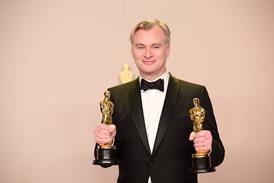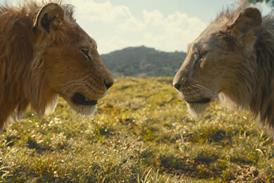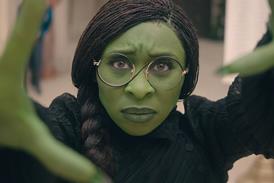Around $20m in direct annual investment in film production has escaped the knife in a package of changes that will reduce Screen Australia’s current annual budget by $US5.18m (A$5.5m).
But chief executive officer Graeme Mason has lowered the maximum available for an individual film from $2.35 (A$2.5m) to $1.9m (A$2m).
Tony Abbott’s Federal Government reduced the film agency’s appropriation by $35.78m ($A38m) over four years starting on July 1. That happened when the Federal Budget was handed down in May, five months into Mason’s new job. Total annual appropriation is about $94m (A$100) per annum.
This week Mason made public his response: to cut 10% of staff, remove arms length and some direct training, and discontinue the production of interactive games.
He has tried to protect investment in production across the board, he said repeatedly, but production and development will be cut by $1.9-2.8m ($A2-3m) with $1.4m (A$1.5m) of this amount being trimmed from documentary (Screen Australia also funds adult and children’s television drama).
Development will suffer too, but the smaller number of projects supported, will get more money.
Mason emphasized to ScreenDaily that the producer offset – a tax rebate of up to 40% of Australian expenditure on Australian films – was unaffected.
It delivers about $100m per year to film producers, including for international co-productions. It was noted in this week’s changes, that the guidelines governing co-productions are being revised.
The principal structural change to Screen Australia is the abolition of the marketing department in favour of a “business and audience” department.
“[Kathleen Drumm] did a great job of setting up the marketing team and provided passionate support for Australian screen creators and we wish her well,” Mason said of the marketing head who will be leaving in around six weeks.
Screen Australia is also changing its terms of trade so that all project funding up to $470,000 (A$500,000) will be regarded as grants rather than investment, and copyright on those projects will be relinquished in favour of the producer.
State agency Film Victoria recently did similar across all funding but Mason said it was not appropriate to do this in the case of Screen Australia.
“We are trying to make life better and simpler for the industry and ourselves but we are normally the core funders and the state agencies are normally the top-up funders and 7-10% of our investment funds are from recoupment (across all types of production),” he said.
Australian films regularly do very well on the festival circuit and Mason expressed a wish to find ways of providing more targeted support to help the creative teams travelling with those films to benefit professionally and financially. He used 52 Tuesdays and The Babadook as recent examples.
“The sky hasn’t fallen in,” he said, drawing attention to the industry’s many positive attributes including the audience support for local television content, and the number of Australians on the world stage, both in front of and behind the camera.
He describes the agency’s core business as working “to support bold, enduring and culturally significant Australian storytelling that resonates with local audiences and succeeds in a global marketplace, (and is) created by a skilled and entrepreneurial screen industry”.
In addition to the US$35.78m Screen Australia will have to find “efficiency dividends” as do all government organisations. There has been prolonged public discussion about the Federal Budget because of unpopular cuts to health and social services but Screen Australia has been little discussed outside industry circles.

























No comments yet